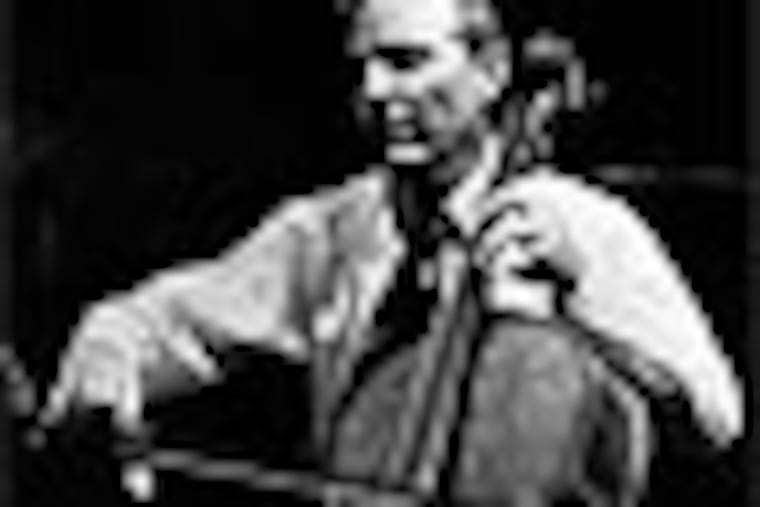Orlando Cole, cellist and Curtis teacher, dies
Cellist Orlando Cole, believed to be the last living link with the 1924 opening of the Curtis Institute of Music, died yesterday morning at the age of 101. He worked with Curtis-trained composer Samuel Barber on major compositions and taught hundreds of students who joined the world's orchestras and became virtuosos, such as Lynn Harrell and Lorne Munroe.

Cellist Orlando Cole, believed to be the last living link with the 1924 opening of the Curtis Institute of Music, died yesterday morning at the age of 101. He worked with Curtis-trained composer Samuel Barber on major compositions and taught hundreds of students who joined the world's orchestras and became virtuosos, such as Lynn Harrell and Lorne Munroe.
A lifelong Philadelphian, Mr. Cole was a Curtis student from 1924-34, and was a Curtis faculty member from 1938-2005. For more than 50 years, Mr. Cole was cellist for the acclaimed Curtis Quartet, which made many classic recordings, was among the first American quartets to tour Europe, and gave weekly concerts at the Central Branch of the Free Library of Philadelphia. (The quartet dissolved in the early 1980s.)
In fact, the Curtis Quartet's recording of Schubert's Quintet in C major was the last thing Mr. Cole heard early yesterday. Because of his impaired eyesight in recent years, recordings had a prominent place in his life, his son David said yesterday.
"What was so special about the Cole household," wrote Harrell in Overtones magazine in 2004, "was the reverence for great composers and . . . the music itself."
Although the benevolent Mr. Cole invited Harrell to live in his home, he wasn't an easy teacher. Harrell had already studied with the acclaimed Leonard Rose at the Juilliard School, but Mr. Cole took him back to square one to learn the structural elements of music.
Munroe went on to be principal cellist of the Philadelphia Orchestra and New York Philharmonic, but not before working through challenging but minor-league Cole-prescribed works. But Mr. Cole bristled when students dared to tamper with the text. "He believed that you play what the composer wrote, even if it was difficult or awkward," Munroe said yesterday.
"His priorities were to play with the most beautiful tone you could get," said David Cole, who is also a cellist. "Every day, he tried to play more beautifully." To that end, Mr. Cole owned the "Sleeping Beauty Montagnana" cello, whose distinctive tone was made famous by the previous owner, Gregor Piatigorsky, the Russian virtuoso.
Mr. Cole played the world premiere of Barber's 1932 Cello Sonata with the composer at the piano, following intensive collaboration to ensure the piece's cello writing was idiomatic. He also premiered Barber's 1936 String Quartet, the slow movement of which became the Adagio for Strings, now one of the most popular classical works. Recalled David Cole, "My father has a letter from Barber saying that he'd just finished the slow movement, and that it's 'a doozy.' "
Though Mr. Cole hadn't been able to play a cello for years, he still taught students as recently as last year. "Teaching for more than 75 years has given me cause to feel that my life has been well spent," Mr. Cole once wrote. "If I were granted a second go-around, I would want to continue sharing my love of music and the cello with students and audiences."
In addition to his son David, Mr. Cole's survivors include children Timothy and Deborah; four grandchildren; and six great-grandchildren. He was preceded in death by his wife, Rosamunde, in 1989. Services will be private.